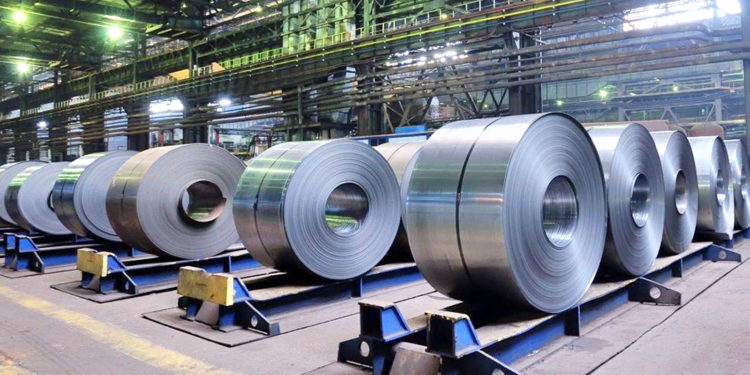In a shocking turn of events, economists and financial analysts were left astounded by the recent revelation exposed by a multiagency task force spearheaded by the Competition Authority of Kenya (CAK) and the Directorate of Criminal Investigation in Kenya (DCI). This exposé sheds light on the deeply troubling conduct of nine prominent steel companies operating in Kenya. These companies, including Nail and Steel Products, Brollo Kenya, Blue Nile Wire Products, Tononoka Rolling Mills, Devki Steel Mills, Doshi & Hardware, Corrugated Steel, Jumbo Steel Mills, and Accurate Steel Mills, were found guilty of engaging in price fixing by collectively setting prices and price adjustment timelines, and causing artificial demand through limiting supply. The consequence of their actions was a record-breaking fine of Kshs 338.5 million, the highest ever imposed by the authority.
Read more: ‘Wash Wash’ Cartels, Alcoholism Top Of IG Nominee Koome’s List
The genesis of this investigation traces back to August 2020 when a courageous whistleblower came forward, shedding light on the nefarious plans of these companies to exploit the persistent economic challenges brought about by the COVID-19 pandemic. What is particularly noteworthy is that these manufacturers shared a common ethnic background, and their collective misconduct extended to various illicit activities. The cartel’s modus operandi was a complex web of anti-competitive actions, including price fixation of crucial products that were on demand, limited supply of these products in the wake of increased demand, hence fueling more demand crisis in the market, bid rigging for some of the crucial tenders in government projects and division of territories to establish market dominance. The territorial division meant that certain companies were granted unrestricted access to specific regions for business while other companies were not allowed to do business in some parts of the country after agreements among themselves. The investigations further led to the revelation of four paint companies which were found guilty of price fixation, namely Crown Paint, Basco Products Ltd., Kansai Plascon and Galaxy Paints, and a raid in Nairobi, Mombasa and Kisumu premises of steel companies in December 2021.
At that moment, financial analysts had been attributing the surging prices of construction materials to the ripple effects of the COVID-19 pandemic on the economy, which had disrupted global steel supply chains. Moreover, the depreciation of the Kenyan currency against international currencies had inflated the costs of importing raw materials for steel manufacturing and other products for construction. These challenges were further compounded by the ongoing conflict between Russia and Ukraine, causing logistical disruptions across the construction sector. However, it is crucial to note that, amidst these complexities, there was a gradual recovery of the economy from the pandemic. This revival was accompanied by a noticeable surge in demand for construction materials as compared to 2020, driven by investors embarking on the construction of various projects such as residential houses, light factories, warehouses, and retail premises accompanied by increased infrastructural developments of stalled and new projects by the government across the nation.
Read more: Political Motives Disrupt E.A.C. Dairy Trade: The Cost of Protectionism on Kenyans’ Welfare
However, CAK observed from information gathered from different whistleblowers that the unprecedented acute shortage of supplies witnessed in the market and abnormal escalation of prices of major construction materials had to do with factors beyond what economists had cited. Upon review of this evidence, CAK came to a realization that the manufacturers’ actions flagrantly violated the Competition Act, which protects consumers from dangerous, unlawful practices of companies. For instance, Section 31 of the Competition Act forbids companies from conspiring to control product prices, setting minimum charges, and determining when and to whom to offer discounts practices that hurt consumers and competitors.
In conclusion, the uncovering of cartel-like conduct within Kenya’s steel industry should serve as a wake-up call to all businesses, not just within the construction sector but also all companies in other sectors of the economy. Consumers have unjustly shouldered the burden of manufacturers who exploit global economic turmoil as an excuse in the line of their local businesses. In the realm of large companies in the construction sector, these manufacturers adopt a strategic approach of amassing ample raw material stocks, which can sustain their production for an extended duration to the future as a way of mitigating any future supply and demand risks in production. Therefore, any concerns raised by manufacturers immediately after a crisis had to raise red flags in the first instance. Without the vigilance of whistleblowers, Kenyan consumers would have continued to suffer from inflated prices, which also means a lot of cartel conduct is still being exhibited by many other manufacturers in the country behind the watch of the relevant agencies. Additionally, the fines imposed on these guilty companies are minor in comparison to the billions they reaped during the two-year investigation. It is imperative that more stringent penalties, such as temporary business suspensions, are considered to discourage future misconduct because, just like tax evaders and drug cartels, these manufacturers are becoming increasingly sophisticated in their tactics, surpassing the pace of investigations conducted by regulatory bodies like CAK.
To genuinely protect consumers and maintain a fair marketplace, CAK and other relevant stakeholders must move beyond merely relying on whistleblowers. Proactive monitoring and investigation of manufacturers in all sectors of the economy are essential to ensure that consumers are shielded from such unscrupulous practices. Failure to do so will perpetuate the threat posed by cartels and erode consumer confidence in the market. It is high time for these authorities to step out of their comfort zones and take resolute action to safeguard the interests of Kenyan consumers.
Email your news TIPS to editor@thesharpdaily.com
















